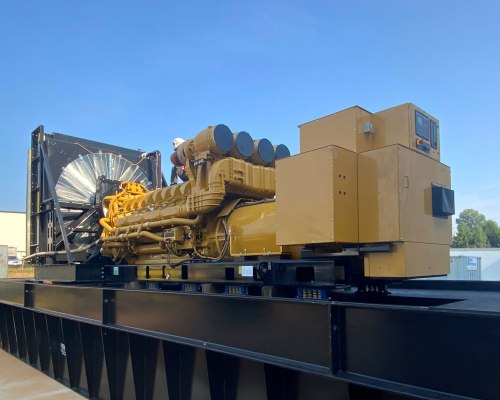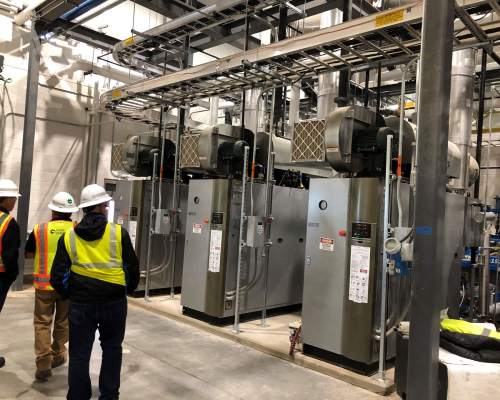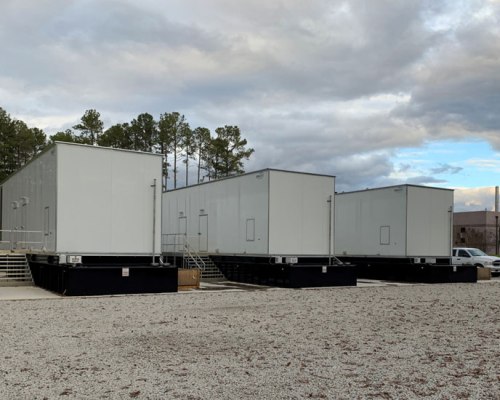Charlotte Area Transit System
The Challenge
The CATS agency operates in a primarily urban environment and experiences both very high temperatures that can rise to over 90 degrees Fahrenheit in summer and winter temperatures below freezing. CATS’ electric bus pilot program was originally designed to test whether battery electric buses (BEB) could operate to meet the agency’s needs in its service area climate and topography, with a plan to procure six BEBs and six DC fast chargers to test them in CATS’ operating environment. Over time, the aim of the pilot program evolved to become a comparative test of different manufacturers’ buses and chargers. As part of this evolution, the agency expanded its pilot from six to 18 buses and secured the partnership with eTransEnergy for expanded charging and infrastructure.
“eTransEnergy has given us an upper hand on energy management. They’ve guided us on use of energy at peak and off-peak times and understanding what’s the best time to charge the buses, down to what it’s going to cost and how to forecast energy changes.”– Catherine Kummer, Sustainability, Resiliency and Governmental Affairs Officer with CATS
The Solution
eTransEnergy worked with CATS to plan, implement and manage the install of 10 dual-port DC fast chargers. Meanwhile, Duke Energy played a typical utility role of evaluating and upgrading the service to provide the enhanced power requirements for the facilities out of which the BEBs operate.
As CATS was developing plans for its BEB pilot, the agency received an unsolicited proposal from eTransEnergy on a range of services that the company could provide in support of the BEB pilot. These include project management, engineering and design support. Following on this, CATS developed an open RFP process, and an independent panel selected eTransEnergy out of this procurement process.
When CATS submitted its 2020 Low or No Emission Vehicle grant proposal, both eTransEnergy and Duke Energy were listed as working together in the proposal. Having an entity other than a bus original equipment manufacturer (OEM) as the project partner is somewhat unusual in the LowNo process. CATS noted that they chose this route because, by the time they were working in the 2020 grant proposal, they had shifted their vision for the pilot. They wanted to use the pilot to help them understand different manufacturer offerings as they prepared for the long-term BEB transition. Working with eTransEnergy enabled them to use the grant funding to test various offerings rather than locking them into a partnership with one manufacturer.
eTransEnergy became a key project manager on the pilot project – helping with procurement, facilities planning, charging infrastructure installation and monitoring.
The Results
- Long-term collaborative relationship with a highly experienced energy advisor
- A successful pilot program with real-world use data
- Guidance on charging and minimizing programwide usage costsn
More reliability. Less risk.
Duke Energy, the serving utility, met its obligation for service as it would for any customer seeking a new or higher-capacity interconnection to meet site demands. Duke Energy distribution planning engineers worked with CATS and eTransEnergy to establish capacity requirements at the two depots that were getting charging infrastructure.
As this pilot project winds to a close in October 2023, CATS is looking forward to its next phase and is working with Duke Energy to prepare for a larger fleet of battery buses.
A key takeaway for the agency from this pilot is the importance of data in understanding the buses’ real-world energy use and how to manage energy use and cost. Relatedly, the agency advises setting up the BEB facility on a separate meter. One of the two BEB facilities at CATS needed a new transformer, so the facility was put on a separate meter. Having this facility on its meter gives CATS greater visibility into the fleet’s energy use and the impacts of the rate schedule at this facility on overall energy costs. CATS believes this is a tremendous opportunity to manage its BEB fleet’s energy usage with good data.
Who We Are
Duke Energy Sustainable Solutions has been improving the quality, resiliency and efficiency of energy strategy for large commercial and industrial customers for over 25 years. Our expertise, contracting flexibility and variable risk sharing allow our clients to improve their mechanical and electrical infrastructure while delivering better business outcomes.



